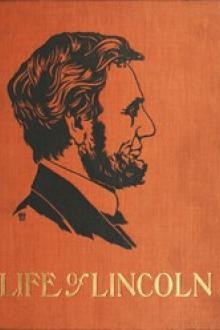The Life of Abraham Lincoln for Young People by Harriet Putnam (the dot read aloud .TXT) 📕

- Author: Harriet Putnam
- Performer: -
Book online «The Life of Abraham Lincoln for Young People by Harriet Putnam (the dot read aloud .TXT) 📕». Author Harriet Putnam
Free e-book «The Life of Abraham Lincoln for Young People by Harriet Putnam (the dot read aloud .TXT) 📕» - read online now
Similar e-books:





Comments (0)